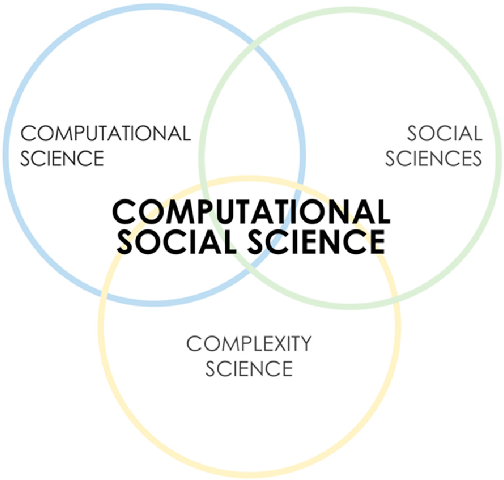Coursera - Computational Social Science Specialization
Projects | | Links: Coursera | Read More

Coursera’s Computational Social Science Specialization
Computational Social Science is a blending of computer science methods (namely ‘Data Science’), social sciences (the data source), and complexity science (e.g. networks). Some of my favorite papers:
- Bose-Einstein condensation in complex networks – this work connects Bose Einstein Condensates to complex networks, which can then be used to learn about the topology of networks. This application is discussed in the next paper.
- The physics of the Web – Barabasi explores the various intracies of networks, such as the basics (e.g. random vs scale-free), how these basics relate to power outages, and the internet. My favorite concept in this paper is the application of ‘fitness’. In short, the fitter a network node the easier it is for the node to make new connections. The concept is the rich-get-richer scenario, one seen across many domains.
- Prestige drives epistemic inequality in the diffusion of scientific ideas – Clauset argues that the spread of scientific ideas is like a competition. Great ideas are more fit, so they spread more easily. Considering that ideas originate from people, Clauset et al investigate the role of institutions. They find that ‘‘research from prestigious institutions spreads more quickly and completely than work of similar quality originating from less prestigious institutions.’’
- Good Fences: The Importance of Setting Boundaries for Peaceful Coexistence – Co-authored with the brilliant Yaneer Bar-Yam, the team was able to accurately predict ethnic violence based on social structures. They found that intermediate ‘patches’ of ethnicity (e.g. religion, language, etc) were the key factor in violence. When patches are small or large the violence minimizes. The intermediate sizes led to Us-vs-Them behaviors. Bar-Yam et al also found that places with distinct boundaries helped to mitigate violence (e.g. rivers, mountains). They propose three ways to resolve ethnic violence: (1) accelerate mixing, (2) accelerate separation, (3) a good fence.
To better familiarize myself with the techniques used in this field I took the Coursera Computational Social Science Specialization. The specialization consists of five courses: Computational Social Science Methods; Big Data, Artificial Intelligence, and Ethics; Social Network Analysis; Computer Simulations; and Capstone Project. The capstone project is comprised of web scraping, social network analysis, natural language processing, and agent-based modeling. To truly test my skills I decided to create my own projects for each challenge within the capstone project.